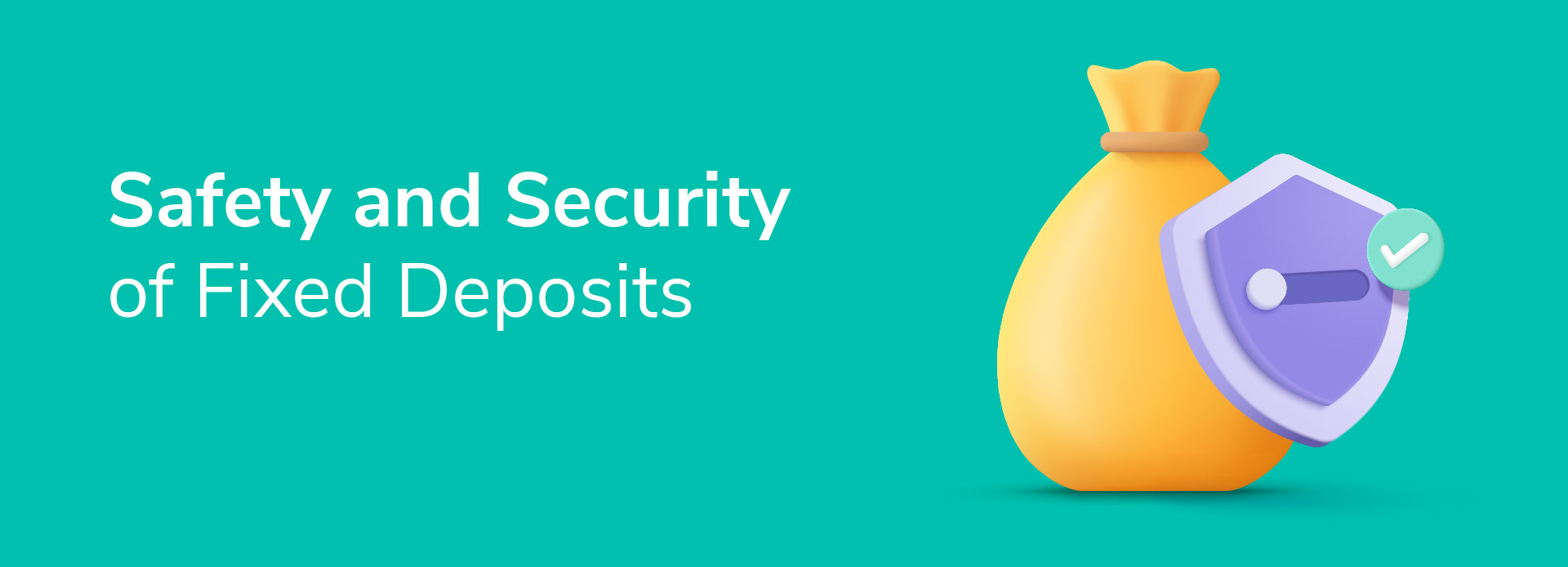
Exploring the Safety and Security of Fixed Deposits
11 March 2024 | By INDIE
Fixed Deposits (FDs) have long been revered for their reliability and steadfast nature, making them an attractive choice for risk-averse investors. This article aims to explore the safety and security features that make fixed deposits a trusted and secure option for individuals looking to preserve their capital.
What Is a Fixed Deposit?
A Fixed Deposit is a financial scheme offered by banks and financial institutions that allows individuals to deposit a sum of money for a specified period at a predetermined interest rate. It is considered a low-risk investment option, providing a fixed return on the principal amount over the agreed-upon tenure. Fixed deposits are also known as term deposits, time deposits, or certificates of deposit (CD).
To initiate the process, individuals select a bank or financial institution offering fixed deposit services and open an account. They deposit a lump sum amount, known as the principal, for a chosen tenure, ranging from a few days to several years. The bank offers a predetermined fixed interest rate on the principal for the selected duration. Interest can be paid out at regular intervals or compounded and paid at maturity. Upon maturity, the principal amount, along with the accrued interest, is returned to the depositor.
Exploring the Safety of Fixed Deposits
1. Stability in Returns
Fixed Deposits are known for offering a stable and predictable stream of income. The fixed interest rate remains constant throughout the tenure of the deposit, providing investors with a sense of financial security.
2. Government Backing and Regulatory Oversight
In many countries, fixed deposits offered by banks and financial institutions benefit from government backing and regulatory oversight. This ensures that the interests of depositors are protected, adding an extra layer of security to the investment.
3. Low Risk of Capital Erosion
Unlike market-linked investments, fixed deposits are not subject to the fluctuations of financial markets. The principal amount invested is generally secure, minimising the risk of capital erosion and offering peace of mind to investors.
4. Credit Ratings of Financial Institutions
Before opting for a fixed deposit, it is prudent for investors to assess the credit rating of the financial institution offering the deposit. Higher credit ratings signify the institution's financial strength and ability to meet its repayment obligations, instilling confidence in the safety of the investment.
5. Insurance Coverage
In certain jurisdictions, fixed deposits are covered by deposit insurance schemes, providing an additional safety net for depositors. This insurance coverage assures investors that a portion of their deposit is protected, even in the rare event of a financial institution facing distress.
6. Transparent Terms and Conditions
Fixed Deposits are known for their transparent terms and conditions, clearly outlining the interest rates, tenure, and any penalties for premature withdrawals. This transparency empowers investors to make well-informed decisions based on their financial goals.
7. Nomination Facility
Many fixed deposit schemes offer a nomination facility, allowing investors to designate beneficiaries. This feature simplifies the process of succession planning, ensuring a smooth transition of the investment in case of unforeseen circumstances.
8. Tenure Flexibility
Fixed Deposits come with various tenure options, catering to the diverse financial goals of investors. While longer tenures often come with higher interest rates, shorter tenures provide liquidity for those who may need access to their funds in the near future.
9. Tax Benefits
Investing in fixed deposits not only provides a secure avenue for wealth accumulation but also comes with notable fixed deposit tax benefits. Under Section 80C of the Income Tax Act, individuals can avail themselves of a deduction for investments made in tax-saving fixed deposits, contributing to potential reductions in taxable income.
10. Liquidity and Premature Withdrawal
While fixed deposits are known for their safety, it is essential to consider the liquidity aspect. In some cases, premature withdrawal of funds may result in a penalty or a reduction in the interest earned. Investors should carefully review the terms and conditions of the fixed deposit scheme, understanding the implications of early withdrawal to make informed decisions.
Recommended Read: Unlocking the Power of Auto Sweep FD on INDIE by IndusInd Bank
Understanding INDIE Fixed Deposits
INDIE Fixed Deposit offers a range of schemes and features designed to provide a seamless and rewarding investment experience. One notable advantage is the hassle-free instant booking process, allowing you to open your FD online in just three easy steps, requiring only your PAN and Aadhaar details. The INDIE Fixed Deposit boasts a high interest rate, ensuring that you earn a competitive return on your deposits. The video KYC facility enables you to complete your KYC instantly, facilitating the swift booking of an FD of any amount.
Conclusion
Fixed Deposits remain a cornerstone of financial planning due to their safety and security features. Investors seeking stability, predictable returns, and capital preservation find fixed deposits to be a reliable choice. By understanding the various safeguards and benefits associated with fixed deposits, you can make informed investment decisions aligned with your risk tolerance and financial objectives.
Explore more about the fixed deposit account.




